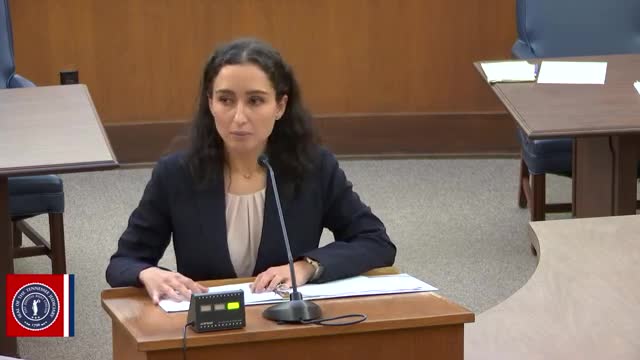Court rules evidence missing in high-stakes trial drama
October 02, 2024 | Judicial, Tennessee
This article was created by AI summarizing key points discussed. AI makes mistakes, so for full details and context, please refer to the video of the full meeting. Please report any errors so we can fix them. Report an error »

In a recent court ruling, the absence of a crucial audio recording has been deemed non-negligent by the state, as the court found no evidence that the recording ever existed. The case centers around the testimony of Wilkerson, who stated that Sergeant Starks transcribed his statement during their interaction. This transcription was referenced by Sergeant West, suggesting it was recorded in Wilkerson's own words.
However, inconsistencies arose during the trial, as Wilkerson's written statement differed from his oral testimony. The defense utilized these discrepancies to challenge Wilkerson's credibility. Notably, Sergeant West confirmed that Wilkerson had the opportunity to review and sign the statement, which he did not fully deny, only suggesting that the wording was not to his preference.
Despite the issues surrounding Wilkerson's testimony, the court acknowledged substantial evidence linking the defendant to the crime. This included eyewitness accounts, the defendant's fingerprints found on the victim's vehicle, and video footage capturing her departure from the scene. Additionally, the victim had made statements implicating the defendant, further solidifying the case against her.
Ultimately, the trial court's determination that the recording did not exist stands, and the appellate court has affirmed this finding, concluding that the evidence presented does not contradict the trial court's conclusions.
However, inconsistencies arose during the trial, as Wilkerson's written statement differed from his oral testimony. The defense utilized these discrepancies to challenge Wilkerson's credibility. Notably, Sergeant West confirmed that Wilkerson had the opportunity to review and sign the statement, which he did not fully deny, only suggesting that the wording was not to his preference.
Despite the issues surrounding Wilkerson's testimony, the court acknowledged substantial evidence linking the defendant to the crime. This included eyewitness accounts, the defendant's fingerprints found on the victim's vehicle, and video footage capturing her departure from the scene. Additionally, the victim had made statements implicating the defendant, further solidifying the case against her.
Ultimately, the trial court's determination that the recording did not exist stands, and the appellate court has affirmed this finding, concluding that the evidence presented does not contradict the trial court's conclusions.
View full meeting
This article is based on a recent meeting—watch the full video and explore the complete transcript for deeper insights into the discussion.
View full meeting
